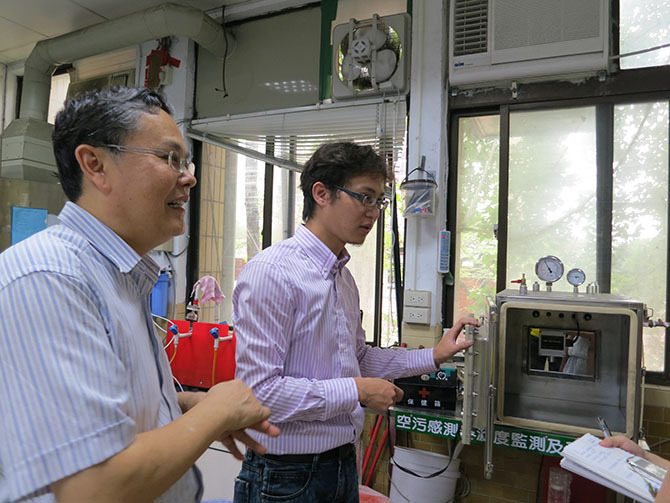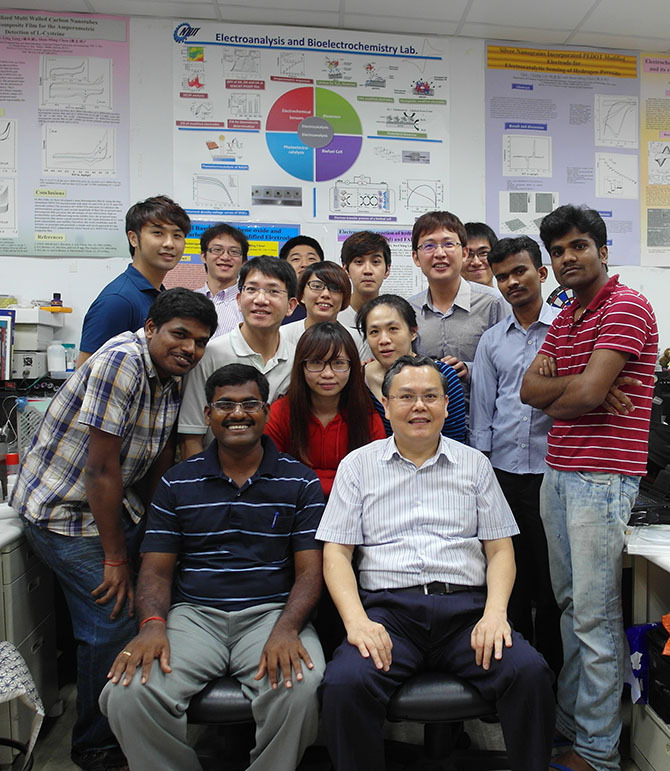Down To The Last Detail Interview with Dr. Shen-Ming Chen on Electrochemistry Lab
Hsiu-Pin Lin and Link Nie

Dr. Chen (left) and his student introducing and demonstrating laboratory equipment.
Holed up in a very cramped space, a seemingly impenetrable fortress composed of laboratory equipment; tinkerers are stationed in their little workshops focused on their own projects at hand. That is the everlasting perception of Dr. Shen-Ming Chen (陳生明) towards a laboratory. As Dr. Chen meticulously and passionately goes around the lab, explaining the principles of research, one may be able to gain a better understanding of analytical techniques, biofuel cell, solar batteries, and chemical and biochemical sensors. By applying and utilizing analytical techniques as the base and foundation of scientific research, it is possible to apply such technique to compliment other research studies in order to gain more insights.
After listening to Dr. Chen’s concise yet in-depth explanation, we were able to understand the core as well as the mantra behind his research: the never-ending pursuit for improvement and perfection. Take analytical techniques, for example, it is a required field of study for it analyzes the sensitive chemical elements that we work with, such as detecting the toxicity in air or water and finding out how much ppm is harmful to the human body. Another vital area of study in our lab is the development of nanotechnology, such as nanometal (gold, platinum, silver, bronze etc.) and nanocarbon (graphene and carbon nanotubes). As a speaker for the government based production education seminars, Dr. Chen can be considered as one of the many elites in his field of study. His research studies are based on chemical detection, which can be incorporated into other areas of research as base, allowing the said research studies to be as meticulous as possible.

Research team group photo with visiting scholar from India, Dr. P. Shakkthivel (front left) and Dr. Chen (front right).
Regarding academia related productions, the newest case of study would be the Development of a Dissolved Oxygen Sensor for Commercial Applications, which Dr. Chen hopes to utilize as a means to bridge the gap between professional work place and academic settings by allowing the two to work closely with each other. To be more specific, what the industries need right now is the technology for detecting particles and the development of new materials, which the academia can provide. Dr. Chen hopes to establish a win-win situation by creating a cohesive partnership between the industries and the university, where the industries would provide materials needed for research and the students can provide the desired technology or results, allowing the two to function on a quid pro quo relationship. This creates a cycle where students will be able to harbor experiences in research and development which enables them to acquire jobs faster and become leading innovators.